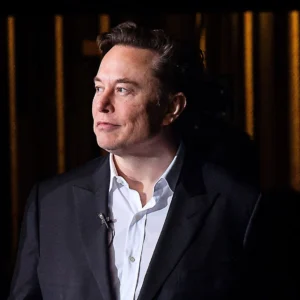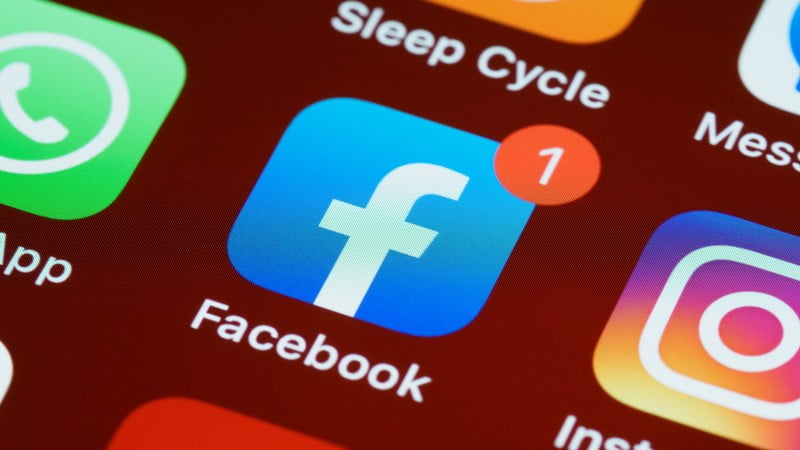
Facebook is the most used social network in the world, with over two billion members. Founded in 2004 by Mark Zuckerberg, it took a few years to spread throughout the world. Here is the story of Facebook
In the beginning it was Facemash . On an October night in 2003, a Harvard student named Mark Zuckerberg , fresh from a date gone bad, sits down in front of his computer and, looking at the university yearbook, has an idea: to create a site where he can upload all the photos of college students. Anyone who accesses it can vote for their favorite between two photos that the system randomly selects. Within a few hours Mark manages to hack the databases of the various Harvard student halls and extract the names and photographs of all the students.
In the first 4 hours of activity, Facemash attracted 450 visitors and 22,000 clicks on photos . The data overload crashed the university’s servers and Facemash was closed by Harvard leaders a few days later: Zuckerberg was accused of security breaches and violation of student privacy and was punished with six months’ suspension. This is where the story of Facebook begins . The success achieved by Facemash convinced the young Mark Zuckerberg to continue with the idea of offering a tool for Harvard students to socialize. In January 2004 , Zuckerberg registered the domain thefacebook.com and the story of the most visited social network in the world began, which changed the history of the Internet forever.
>>> HOW FACEBOOK WORKS, THE COMPLETE GUIDE
Usually the name Facebook is always associated with those of Mark Zuckerberg, but the current CEO of the company is not the only founder of the social network. From the beginning he was helped by several Harvard colleagues who also appear to be among the co-founders of the platform: Eduardo Saverin, Andrew McCollum, Dustin Moskovitz and Chris Hughes. To become the most used social network in the world with over two billion members, Facebook has undergone changes and transformations, so much so that it is almost trivial to define it only as a social network. It is now a 360-degree platform that offers a messaging system (Messenger), a video platform (Facebook Watch) and many other services designed for users. Here’s the story of Facebook .
Facebook is born
The young psychology student with a passion for programming doesn’t give up. In January 2004 he registered the domain thefacebook.com (Facebook is the name of the yearbook with names and photographs widespread in many American universities) and decided to launch a new social network dedicated to the American university world. The inspiration, obviously, remains Facemash (as declared by Zuckerberg himself, the incident had “burned” him a bit), but its functioning and its purpose are different.
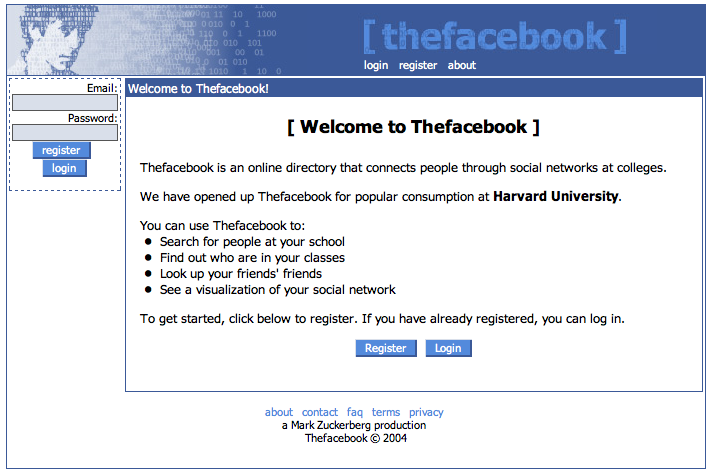
At his side in this new venture are other Harvard students: Andrew McCollum , who contributes to the development of the Facebook algorithm and platform, and Eduardo Saverin , a young student of Brazilian origin who deals with organizational, corporate and promotional aspects of the social network. On February 4, 2004, The Facebook officially opened its doors to the “university population” of Harvard.
The success was practically immediate: at the end of February more than half of the students enrolled at Harvard were registered for the service, while in March 2004 Facebook also opened to students from Stanford , Columbia University and Yale University . In April the service expands to the rest of the Ivy League , MIT , Boston University and Boston College . Within a few weeks, Facebook opened to all university students in the United States and Canada, certifying a success that was perhaps not too unexpected.
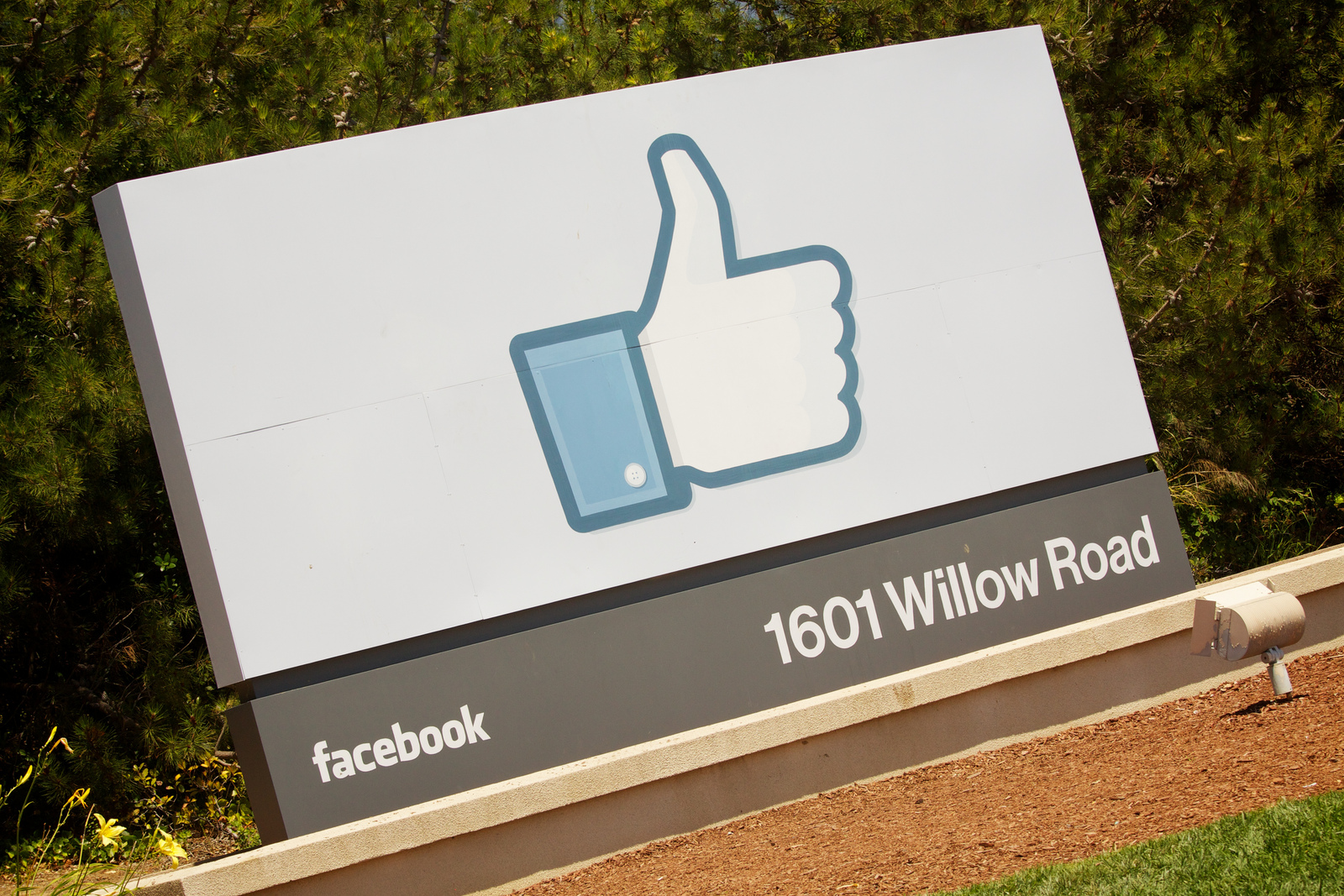
The first investors
In mid-2004 Mark Zuckerberg and the other founding members decided to open a company, Facebook, Inc. , which would allow them to better manage (from a financial point of view, obviously) the great success that their idea is enjoying throughout the world. North America. The entrepreneur Sean Parker , founder of Napster and until then had been an informal advisor to Zuckerberg, becomes President.
Already in 2005 the first investors began knocking on Mark Zuckerberg’s door. The first is Peter Thiel , one of the founders of PayPal , who acquires 10.2% of the company shares with an investment of half a million dollars. Facebook’s stock prices, however, rise quickly and when Microsoft decides to invest in the social network (it’s October 2007) it has to invest 240 million dollars to acquire just 1.6%.

Growth
Facebook’s growth rates know no stopping: the number of users continues to rise, as does the value of revenues. In 2009, just five years after its creation, Facebook’s balance sheet closed in the black, demonstrating that Mark Zuckerberg’s idea was profitable and profitable.Fastweb Mobile Full
9€.95/monthInternet 200 GB and unlimited minuteswith 2 months of free offer!YOU DISCOVER
In those same years, Facebook also began to expand to the rest of the world. In Italy there was a boom in registrations in 2008 : in the month of August there were over 1 million and 300 thousand visits, with an increase of 961% compared to the same month of 2007. The volume of traffic grew so quickly that in March 2010 it exceeded a week Google by number of visits in the United States.
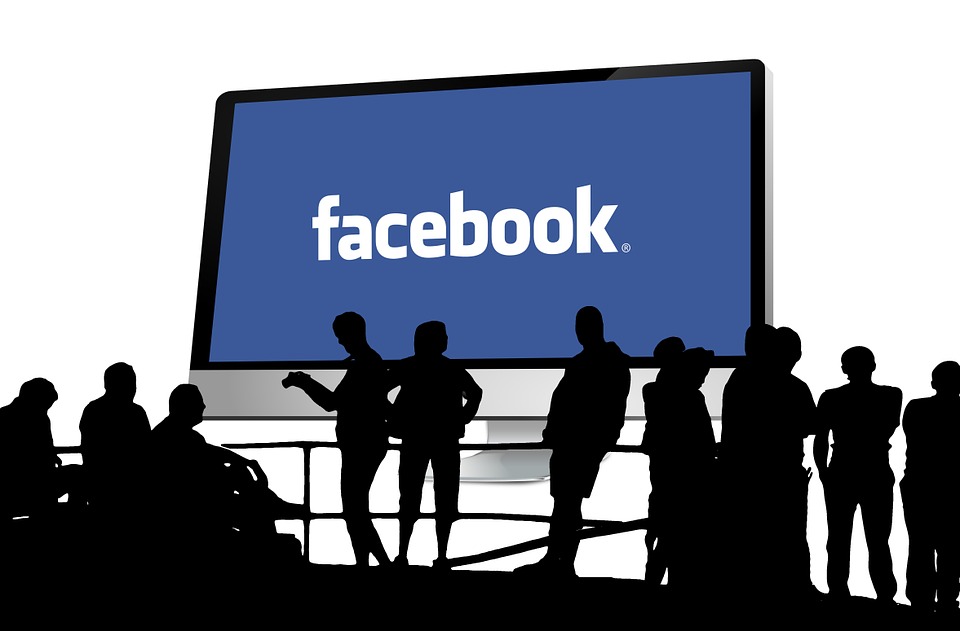
On January 3, 2011, Goldman Sachs knocked on the door of Palo Alto, where in the meantime Mark Zuckerberg had moved the company’s headquarters. The investment bank would like to enter into the capital of Facebook, investing as much as 450 million dollars: the total valuation of the social network grows to 50 billion dollars.
Landing on the stock exchange
Given the financial performance and the continuous growth of registered users and web traffic, Mark Zuckerberg decides that the time has come to test himself on the financial markets. Having passed the examination of the Securities and Exchange Commission , the US federal body responsible for supervising the Wall Street Stock Exchange, Facebook landed on Wall Street on May 18, 2012 with one of the largest public offerings (IPO) in the history of the United States . On the first day of trading, Facebook managed to sell shares for 16 billion dollars (the third ever in US history), raising its valuation to 104 billion dollars (the highest value ever recorded for a new entry on the New York Stock Exchange ). Mark Zuckerberg, then just over 27 years old, suddenly found himself with a personal fortune of several billion dollars.

The acquisitions
The Facebook purchasing campaign began in 2009. The first to enter Facebook’s “sphere of influence” is FriendFeed , a social aggregator of content coming mainly from social networks, blogs and tumblelogs, purchased for 15 million dollars in cash and 32.5 million dollars in Facebook shares. In 2010 Mark Zuckerberg turned his attention to the mobile market: he purchased Snaptu (paid between 60 and 70 million dollars) and Beluga, which allowed Facebook to optimize both the mobile user experience and the Facebook Messenger App, the messaging platform integrated into Facebook. Also in 2010, the “Like” button made its debut and soon became a true icon of the social network.
However, the first major coup by Zuckeberg and his associates dates back to 2012, when the photographic social network Instagram became the property of Facebook for a sum close to a billion dollars (between cash and shares). In the same year, Glancee , a social platform that unites users by geographical proximity and compatibility of interests, founded by two Italians, Andrea Vaccari and Andrea Tretti , also came under the Facebook umbrella .

But what really gets people talking is the announcement of February 19, 2014 : from his Facebook profile, Mark Zuckerberg announces that WhatsApp , an instant messaging application for mobile systems, has also been acquired for 16 billion dollars (which will become 19 billion once the transaction is concluded). ).
Facebook’s problems
The last few years have certainly been the most complicated in Facebook’s history . The social network has had to deal with various problems, especially in terms of privacy and security of users’ personal data. The biggest scandal exploded in March 2018 , when an investigation by The New York Times and The Guardian revealed that the data of millions of users had been obtained illicitly by the company Cambridge Analytica, violating the privacy policies. Facebook security .
The scandal created quite a stir and put the company in difficulty, which had to immediately take action and work hard to make the social network even safer . Marzk Zuckerberg was also called to testify before the United States Congress and explain to the deputies what really happened. For Facebook it was quite a hard blow, but it ultimately allowed the company to improve the services offered to users.
In March 2019 , a new security issue hit the company. This time the bug was discovered by journalist Brian Krebs who, with a post on his personal blog, explained that for several years, the passwords of hundreds of millions of users (estimated between 200 and 600 million) were not encrypted and were saved in an easily readable format. Facebook immediately intervened by publishing a post on its personal blog and explaining that the bug was resolved in January 2019. The passwords were not used for illicit purposes and the users involved were notified.
The security problem is certainly the most difficult one for Facebook to address and will decide the future of the social network.



